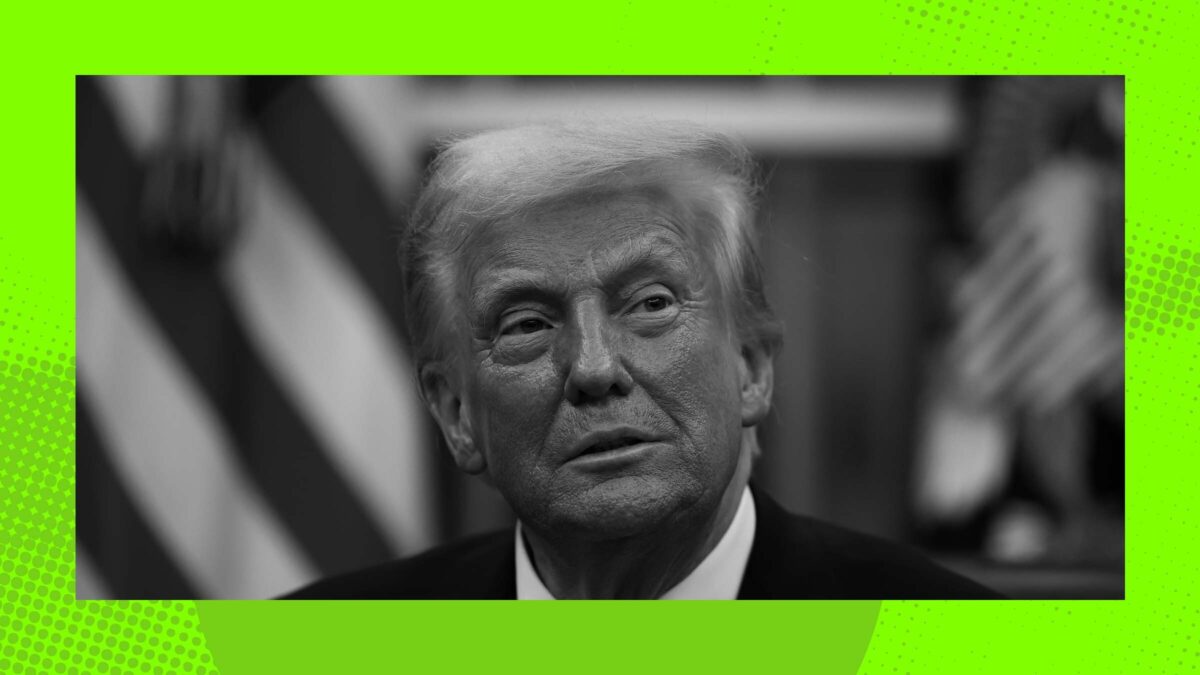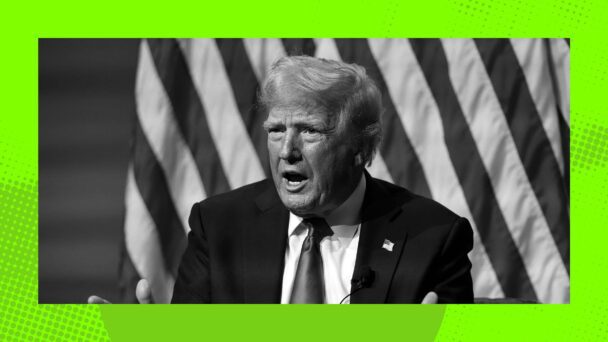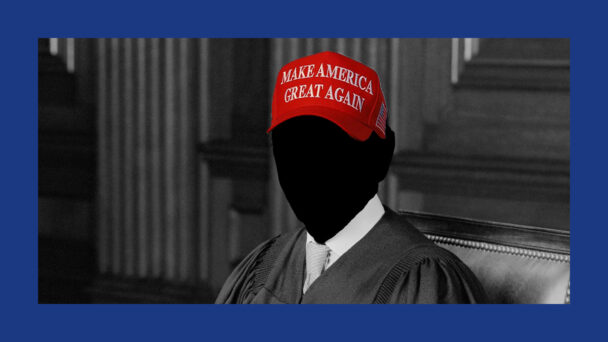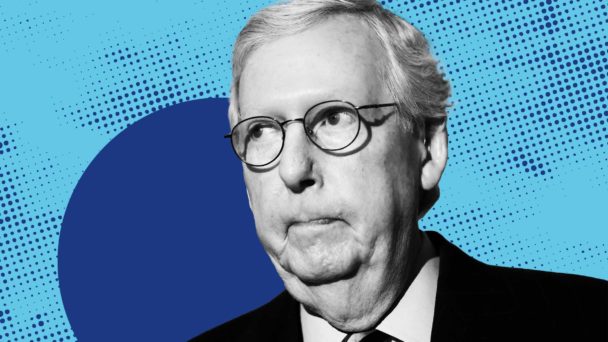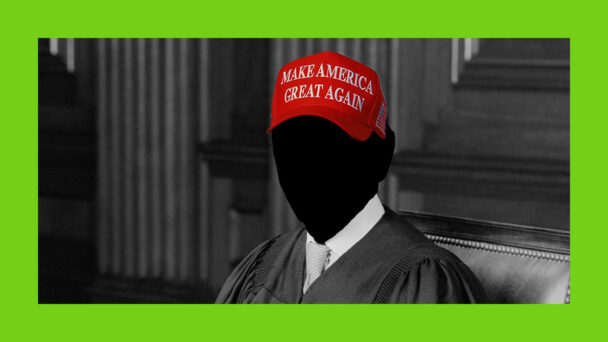Donald Trump re-made the federal judiciary between 2017 and 2021. His 234 nominees confirmed to the federal bench include judges like Matthew Kacsmaryk, Aileen Cannon, James Ho, and others who have become notorious for the lengths to which they’ll go to advance Trump’s personal and political agenda. They also include three Supreme Court justices, who voted to end federal protections for abortion, gut affirmative action, lay the groundwork to undo the regulatory state, and make the president a king. Trump’s judges were overwhelmingly white, male, young, and ideologically extreme. Many were hand-selected by the Federalist Society because of their fealty to the conservative legal project.
And if Trump gets his way, his first term’s impact on the judiciary will be just a warm-up act. Over the coming months and years, Trump is likely to fill the federal bench with radical, far-right lawyers dedicated not to the law, but to advancing his quest for unchecked and unmoderated power.
Since his last term, Trump has had a falling out of sorts with the key architects of his judicial takeover the first time around. In November 2023, The New York Times reported that Trump was no longer on speaking terms with key Federalist Society leadership. During his 2016 campaign, Trump’s alliance of convenience with the conservative legal movement was instrumental in shoring up his support among skeptical Republicans; during his 2024 campaign, he refused to reassure the same voters he’d courted eight years earlier that, if re-elected, he would again appoint judges and justices to their liking. Although longtime Federalist Society vice president Leonard Leo and other leaders of the effort to re-make the judiciary undoubtedly would like to continue to influence the administration—and have conspicuously embraced the culture-war fodder that is in vogue on the right—it is unclear how successful they are likely to be, given their apparent reduced stature in the eyes of the new president.
The cause of the rift? The fact that Trump saw FedSoc and its allies as too tepid in their defense of his coup attempt. As the Times reported in November 2023: “After both the legal policy fights inside the Trump administration and the refusal by the group’s most respected luminaries to join Mr. Trump’s efforts to overturn the 2020 election, the phrase ‘Federalist Society’ became a slur for some on the Trump-aligned right, a shorthand for a kind of lawyerly weakness.”
That’s right. Any American who reads a newspaper can see that the federal judiciary has shifted dramatically to the right, and that that rightward shift has served to protect Trump and enable his return to the White House. Meanwhile, Trump is pissed that federal judges and legal leaders aren’t willing to go far enough in their support for him, his agenda, and his exercises of executive power.
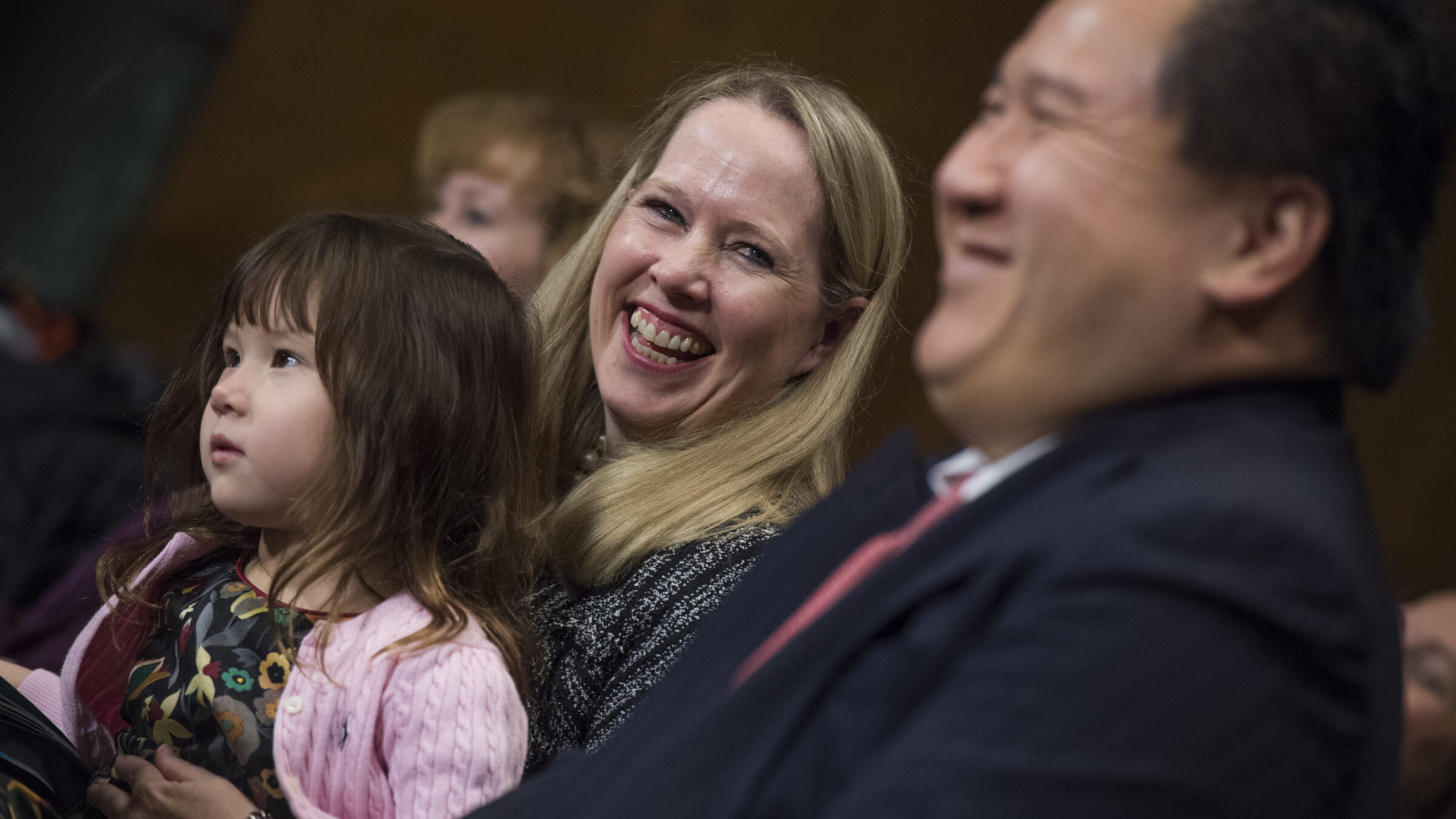
Ho at his confirmation hearing in 2017 (Photo By Tom Williams/CQ Roll Call)
This unhinged view of the judicial landscape will have significant implications for the next four years of appointments. First, Trump is likely to prioritize personal loyalty above virtually all else. When the Federalist Society was calling the shots, candidates were valued for their commitment to using the courts to advance regressive ends, regardless of whether they were committed to the political project of protecting Trump as an individual. But over the last several years, he has seen the value of people who are willing to blow past the boundaries of the law in service to Trump—judges like Cannon, a Florida district court judge who has repeatedly prevented the public from learning about Trump’s mishandling of classified documents. Anyone who aspires to a judicial nomination from this administration will be expected to share this commitment.
Second, future Trump nominees are likely to embrace far-right legal theories that are too extreme for even many of the Federalist Society judges appointed last time around. Take as one example Judge James Ho of the Fifth Circuit: As his audition to be Trump’s next Supreme Court justice continues, he’s embraced fringier positions than ever before, including abruptly announcing that he is of the opinion that the U.S.-born children of many immigrants are no longer constitutionally entitled to birthright citizenship—a direct contradiction of his earlier position. In light of Trump’s executive order attempting to unconstitutionally end birthright citizenship, it’s clear that lawyers with the most radical agendas are driving the White House’s agenda, and Trump is certain to want allies on the bench who will let them do it.
To be clear, Trump and Ho are wrong about the meaning of the Fourteenth Amendment, which has not changed in the 157 years since it was ratified. But Ho’s position is now setting the standard for future Trump judges.
The list of extreme positions that contenders will be expected to take won’t end with birthright citizenship. Trump and his allies are laying the groundwork to contort the meaning of the Twenty-Second Amendment to allow for a third Trump term by, for example, arguing that the Constitution only prohibits two consecutive terms. They want to undo protection for birth control, either by reading it out of the constitutional right to privacy or by reading the Comstock Act to prohibit birth control. They are pushing a protectionist economic agenda that will hurt working people by raising the cost of living in addition to other long-term consequences. Increasingly, the administration will be looking for judges who are willing to go along with positions that would have been considered too radical for the judges appointed even four years ago.
As the Federalist Society’s waning absence in the White House creates a power vacuum, other players with their own regressive agendas are likely to rush to fill it. Early indications suggest that those positioned to have the most sway are far-right religious organizations committed to the project of Christian nationalism. Two of the most prominent jurists appointed in Trump’s first term, Ho and Kacsmaryk, are both products of the Christian legal movement: Ho served as the deputy general counsel of the First Liberty Institute, and Kacsmaryk worked as a volunteer attorney with the same organization, which is known for litigating cases like Kennedy v. Bremerton School District—a case the Court used to make up a right for Christian public school football coaches to pray on the field while doing their publicly-funded jobs.
Organizations like FLI understand that the judiciary is the best path to advancing their extremist agendas, and have pipelines of attorneys ready to fill seats on the bench With a receptive audience at the Court, the far-right Christian agenda is poised to make rapid gains.
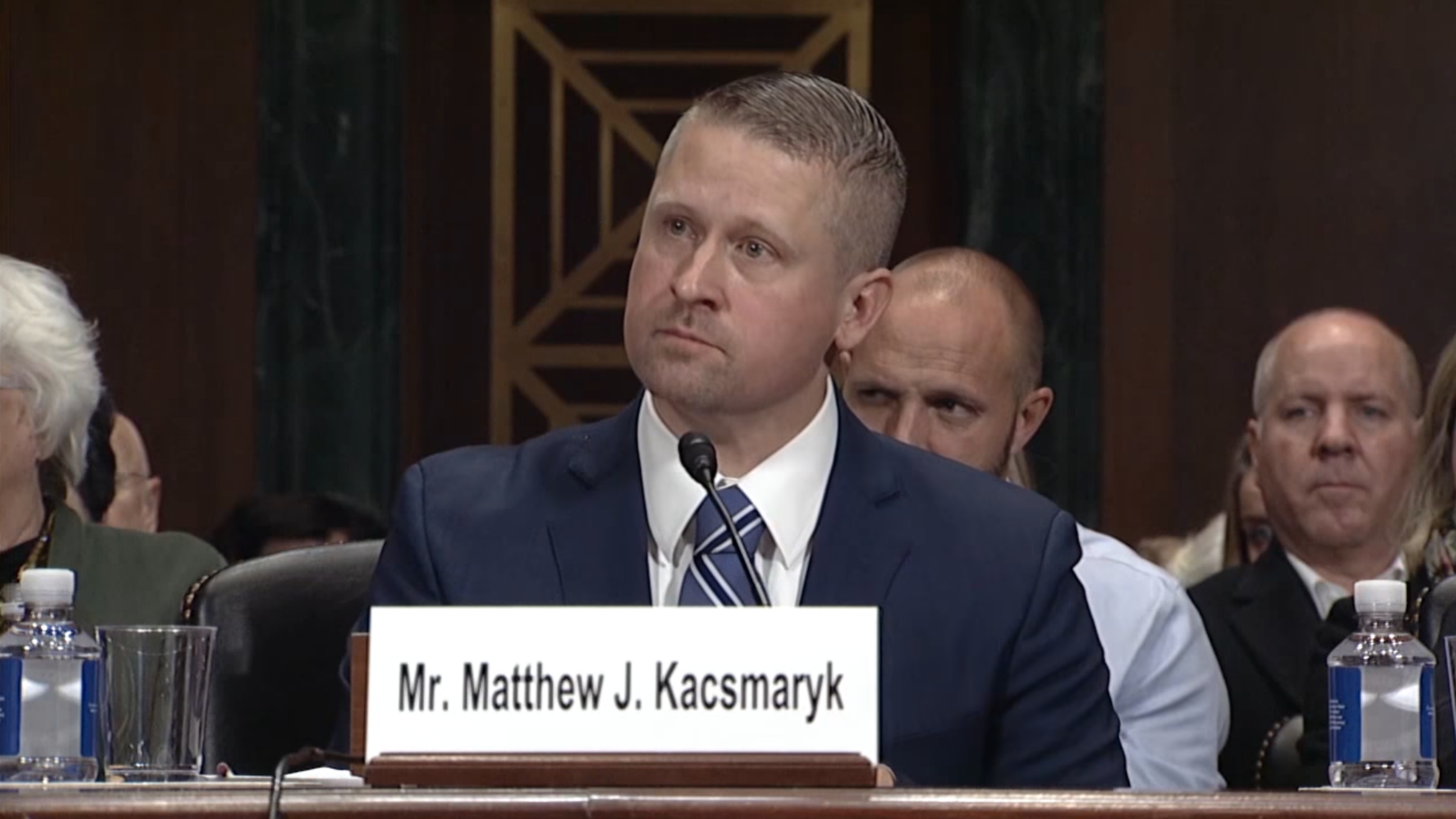
Kacsmaryk at his 2019 confirmation hearing (Screencap via YouTube)
One might wonder whether there are enough lawyers who are adequately loyal to Trump, willing to disregard the law in service to a radical right-wing agenda, and enthralled by the promise of Christian nationalism—while also being qualified to serve as judges—to fill the hundreds of seats that will open up on the bench. But Trump has made clear that he does not require that candidates be qualified to serve as a condition of nomination.
During the first Trump administration, a number of high-profile judgeships were filled by lawyers who lacked traditional experience. Neomi Rao, a Trump-appointed judge on the powerful D.C. Circuit Court of Appeals, had not tried a single case before her appointment. Instead, her most notable accomplishments included serving two years as Trump’s Administrator for the Office of Information and Regulatory Affairs, and, as a college student, writing articles blaming sexual assault victims and attacking affirmative action. If having a law degree and a history of blogging in support of the MAGA agenda are the only qualifications needed to be considered for a judicial appointment, Trump’s candidate pool widens considerably.
There will never be nostalgia for the days when the Federalist Society was running judicial selection for the Trump administration. But as Trump shows every sign of going further—causing more harm, attacking democracy more determinedly, and accumulating more and more power for himself—in his second term, he is going to need judges who will enable him. The extremists appointed during his first term may well look tame in comparison.
